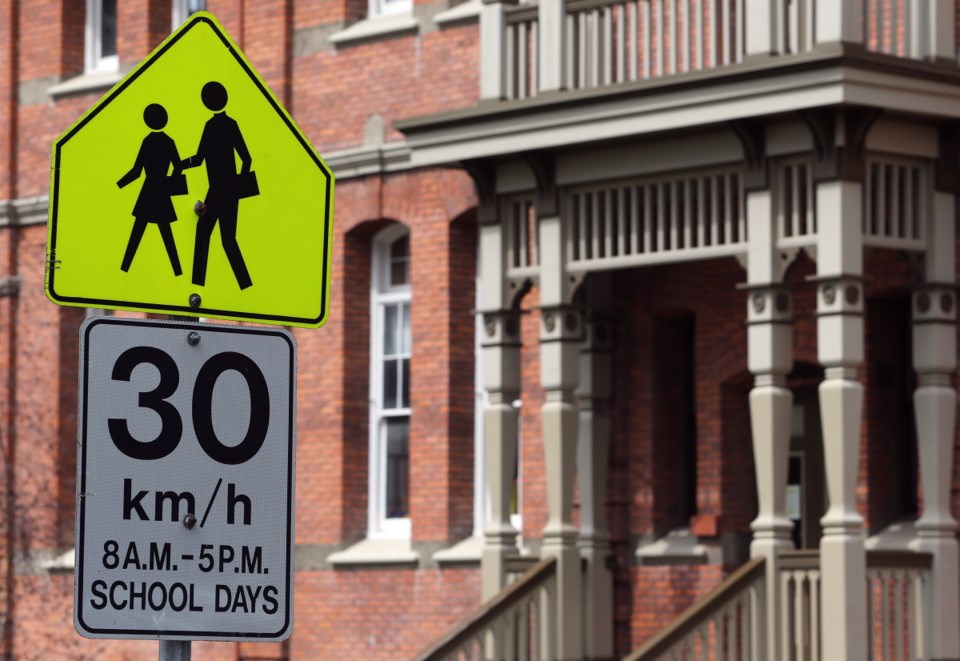On a certain level, you have to appreciate the psychological warfare that goes into negotiations between the B.C. Teachers’ Federation and the agency representing school districts.
It’s like watching chess grandmasters turn into guerrilla fighters.
Admiration for all the tactical moves declines a bit if you have kids in school, and have to worry about the quality of their education. From that perspective, the moves are just a tiresome continuation of the perennial exercise in frustration. But the tactics on display are still a marvel to behold.
Here’s a sample.
Peter Cameron, chief negotiator for the Public School Employers’ Association, wrote to BCTF president Jim Iker last Friday. He congratulated him on his re-election as president and took note of the strike vote, as well as the union’s warning it might start some low-grade job action.
“We respect your right to do so,” said Cameron. “You have indicated … that the purpose of a strike … is to put pressure on both sides in order to motivate them to find a solution … We agree that this is the classic role of a strike.”
Then he unveiled a little tit-for-tat. “In order that there is in fact pressure on both sides, BCPSEA needs to respond to any Phase 1 activities with measures that put corresponding pressure on the union.” So he warned the BCTF that the agency will expect the union to tender enough money to continue teachers’ health and welfare benefits on the same day they start any kind of strike activity.
That would put the union on the hook for monthly premiums for about 40,000 teachers — which amounts to an estimated $5 million a month.
Translation: “You pressure us. We pressure you.”
The move is provided for under labour law, but hasn’t been used previously on the teachers.
Cameron also noted in the letter that the BCTF has not sought essential-services designation. “We understand this to be responsive to the union’s general opposition to essential services in the public school setting.”
The BCTF has repeatedly protested essential-services legislation, saying it favours the employer, weakens bargaining and prolongs disputes.
So Cameron, at a briefing Friday, professed surprise at the union’s move this week — which was to apply at the Labour Relations Board for essential-services designations.
The move is ostensibly to deal with setting levels of supervision needed outside class time to ensure children’s safety.
That’s an issue, because the BCTF’s Phase 1 plan says teachers will not supervise outside class time.
Cameron said applying for essential-services designation is illogical because the only danger arises from the union’s job-action plan. “The source of danger is entirely in their control.”
The real reason for the application, in his view, is that if essential-services levels are in place, there’s a much stronger argument that routine benefit payments by employers remain in place. So the union won’t have to suddenly pick up a $5-million-a-month bill.
The BCTF said, notwithstanding its aversion to the designation, it is applying because it’s the law.
All this is just one small aspect of the negotiations. It’s about each side bracing for events if the negotiations fail. It illustrates the general tone of how talks are going.
As for the main event, the two sides are far apart on salaries. And there are huge differences on the implications of the B.C. Supreme Court decision on the government’s conduct in a contract battle from 12 years ago. The union is treating it as a huge win. Cameron said if it survives the appeal, it will have to be addressed, but it’s irrelevant to current talks.
So as usual, there’s no cause for optimism. The only hope to cling to is from a completely different sphere. It’s the truckers’ settlement with the Port of Metro 91Ô´´. If disparate factions can sit down and settle that in a single day, anything can happen.



